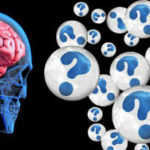New Blood Test Can Help Identify Patients At Risk For Alzheimer’s
Doctors and researchers have long been searching for a cure for Alzheimer’s. While no cure has been discovered, there have been improvements made to the treatments available. Now a blood test can be run to identify proteins that build up in the brain of patients with Alzheimer’s nearly 20 years before the disease is diagnosed.
New Blood Test May Help Identify Alzheimer’s Before Symptoms Begin
Researchers from Washington University School of Medicine (WUSTL) in St. Louis, MO, recently published their findings after completing a study involving two forms of a protein: beta-amyloid 42 and beta-amyloid 40. Both of these forms build up in the brain of Alzheimer’s patients and are generally identified after symptoms have occurred, using a PET scan.
The research showed that when using the blood test in conjunction with age and genetic identifiers, the Alzeheimer’s testing was extremely accurate.
Why Is Early Detection Important For Alzheimer’s?
When Alzheimer’s is detected early, there are great benefits.
Medical Benefits
Some medications for Alzheimer’s can slow the progression of the disease and help with memory loss for a short period of time. The sooner these medications are started, the better. Additionally, new medical trials are created all the time, trials that could one day result in a cure for the disease. If the disease has progressed too far, the patient may not be eligible for the trial.
Emotional Benefits
You and your loved ones can learn about the disease, choose treatment options that are best for you, and maximize your time together.
Ten Signs Of Early Alzheimer’s
The following could be the early symptoms of Alzheimer’s:
Memory Loss That Is Severe Enough To Disrupt Your Day
Everyone can be forgetful and when you are stressed or haven’t gotten enough sleep, forgetfulness can increase. But when someone constantly forgets newly learned information and has to ask for that information over and over and over again, it could be a warning sign.
A Change In Problem Solving
If you or a loved one find that you are suddenly unable to work with numbers or problem solve in a way that used to be relatively simple, this could be a symptom of Alzheimer’s.
Difficulty Completing Familiar Tasks
It doesn’t matter if it’s at home or work – if there is a task that you or a loved one have been able to regularly complete without difficulty but now struggle to finish, let your doctor know.
Confusion About Time And Location
During a busy week, it’s normal to ask “What day is it?” when everything seems to flow together. Those with Alzheimer’s may not know the day, year, or even if it’s morning or evening.
Issues With Speaking Or Writing
Difficulty joining a conversation, speaking, or writing down thoughts can all be symptoms of Alzheimer’s. Losing a train of thought regularly in the middle of a sentence or conversation is common.
Losing Items
Misplacing items or putting those items in unusual places occurs frequently in Alzheimer’s patients. For example, finding car keys in the fridge or a shoe in the bread box.
Difficulty With Spatial Relationships
Commonly misdiagnosed as a visual issue, Alzheimer’s can cause difficulty with seeing colors and judging the distance between objects.
Poor Judgement
This is a very generic symptom and can be difficult to spot, but if you notice a loved one suddenly making poor financial choices or personal choices, this could be a symptom of the disease.
A Withdraw From Social Life
If it becomes difficult to see, communicate, or complete a task, a withdrawal from social life is common. Many Alzheimer’s patients know something is wrong but they aren’t sure what.
Mood Changes
Everyone has a bad day but if you notice extreme personality or mood change this could mean the disease is progressing.
If you have a family history of Alzheimer’s be sure to let your doctor know. By keeping one step ahead of the disease you could live a longer and healthier life thanks to changes in medicine.
Existing Treatment Methods For Alzheimer’s
Alzheimer’s disease is the most common cause of dementia in elderly individuals. It takes several forms, but all develop in the same way: a decline in the cognitive ability of the individual. The first step in treating Alzheimer’s is to find the underlying cause of the decline. It can be a result of age or another disease or medical issue. Alzheimer’s affects the thinking process of patients, making it difficult to conduct even the most simple tasks.
Rapid Diagnosis & Treatment
Because the disease is diffuse and affects the mind as well as the body, treating it rapidly is important to keep patients from succumbing to the various complications that accompany this incurable disease. Dementia makes patients confused, unable to think clearly or reason properly. Cognitive function is also reduced, making it difficult for them to remember things or perform ordinary daily tasks. Treatment for Alzheimer’s involves addressing these deficiencies and improving their cognitive functions.
The primary method of treating Alzheimer’s is to improve the patient’s cognitive functions. The best approach is to focus on the patients’ psychological symptoms rather than addressing the physical problem. Cognitive rehabilitation techniques are often used along with medication. The idea is to help patients rebuild their ability to think, reason and recall by changing their mental states on a day-to-day basis.
Therapy
In addition, the goal of therapy is to help patients control and preserve their emotional reactions to situations. Therapy aims to identify negative patterns and replace them with more positive ones. Therapists can also teach patients how to cope with stressful situations. The primary objective is to reduce the effects of the disease on patients’ emotions and their ability to think. The idea is to use the disorder itself as a stepping stone toward a more normal and healthy lifestyle.
Another treatment option is to remove the amyloid plaque that has formed in patients’ brains. The plaque develops naturally in the brain and causes swelling, stiffness and damage to neurons. Amyloid plaques can eventually interfere with patients’ thinking processes and cause them to suffer from memory loss or to have impeded mental capacity. Additionally, the plaques can form in clumps or bundles that result in different types of injuries and illnesses. These plaques can also cause the brain to swell or to become too hard, ultimately affecting memory and judgment.
Medication
Treatments for Alzheimer’s patients may include the introduction of medications designed to reduce the buildup of amyloid plaques in the brain. Such treatments can range from an oral form of the medication to deep brain stimulation using electrodes. The second treatment option is more invasive than the former, and involves removing the amyloid plaques using surgical techniques. However, there are many potential side effects that accompany this method of addressing the plaques, which makes it less than ideal for some patients.
A study conducted at the University of Wisconsin suggests that by inhibiting the enzyme process involved in the production of amyloid plaque, researchers may be able to stop or reverse the progression of the disease. Other research has indicated that amyloid protein fragments may be effective in treating patients with mild Alzheimer’s. However, this particular treatment method should be considered a last resort as it requires more surgery and lasts a longer time than most other forms of therapy. Furthermore, even if successful, it would only address the symptoms of Alzheimer’s, not address the primary cause.
No matter what form of treatment you choose for the onset of Alzheimer’s disease, it is essential that you maintain a healthy lifestyle in order to prevent the progression of this condition. Maintaining a proper diet, getting regular exercise and making sure to get enough sleep are three ways to improve the quality of life and ease the affects associated with this mental disease. Proper care of your body, mind and brain through a regular and consistent diet, exercise and supplementation with essential vitamins and minerals, are necessary in order to prevent an unfortunate fate for millions of people who are suffering from Alzheimer’s.






